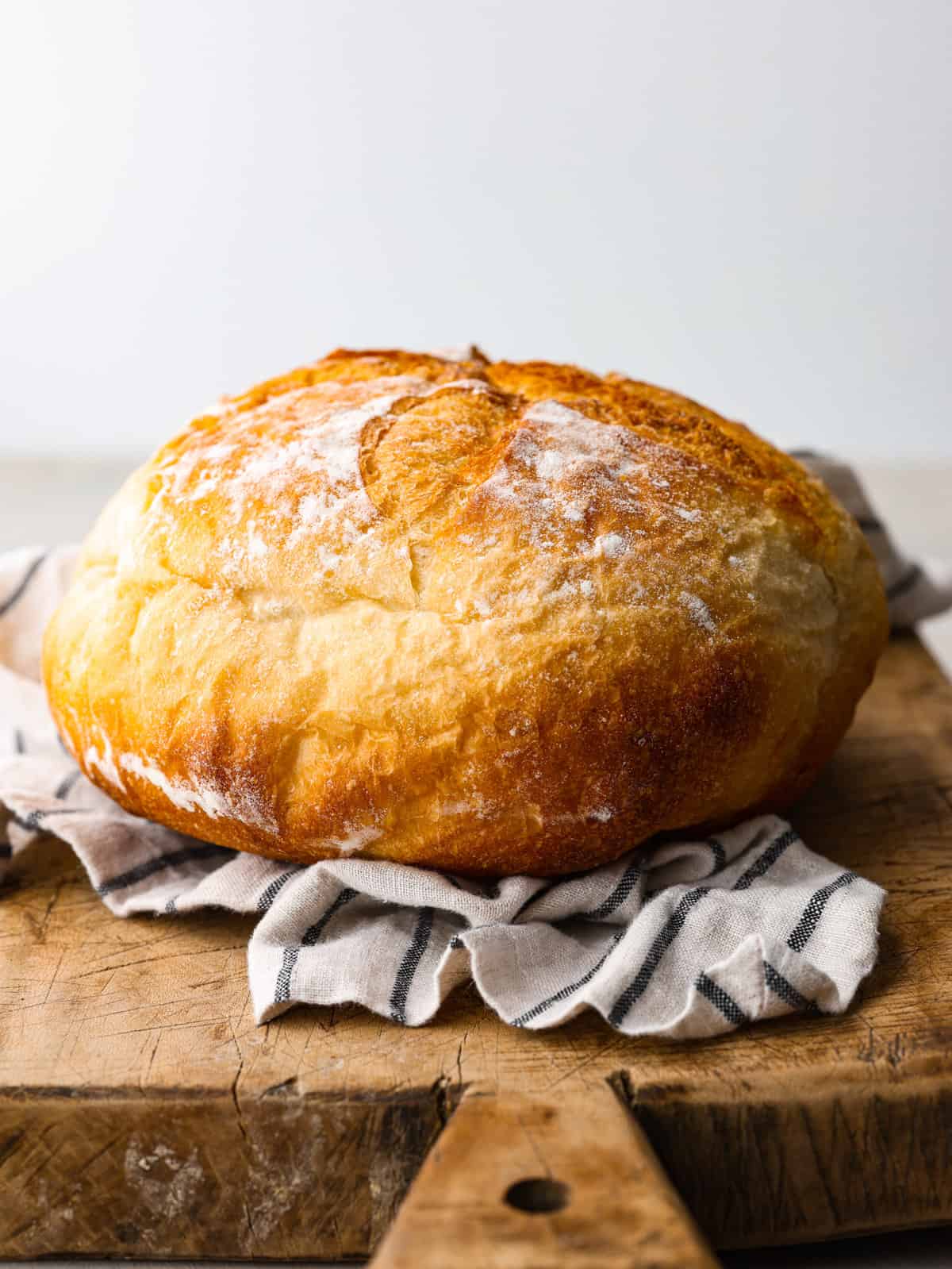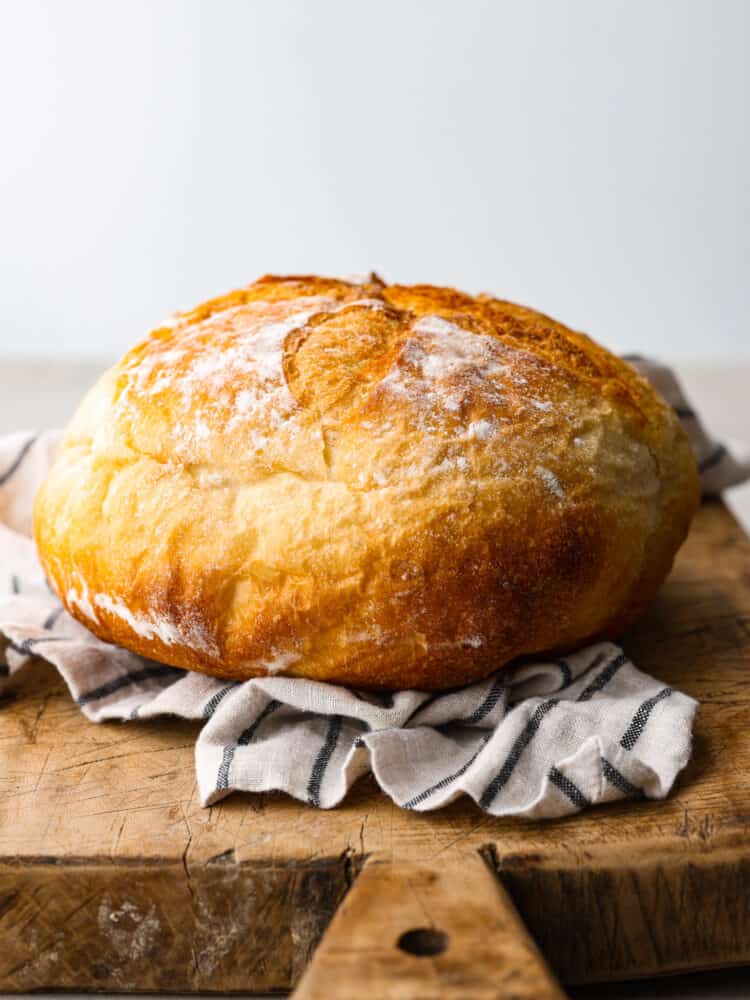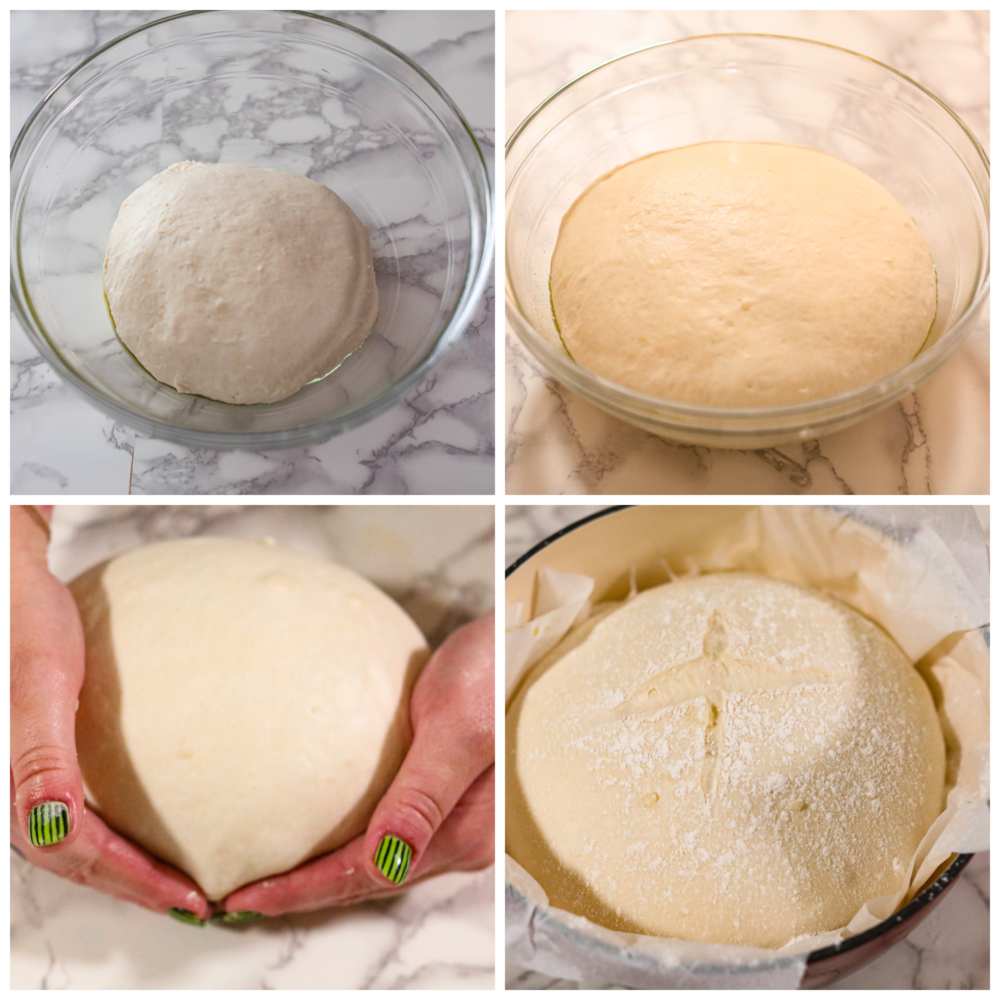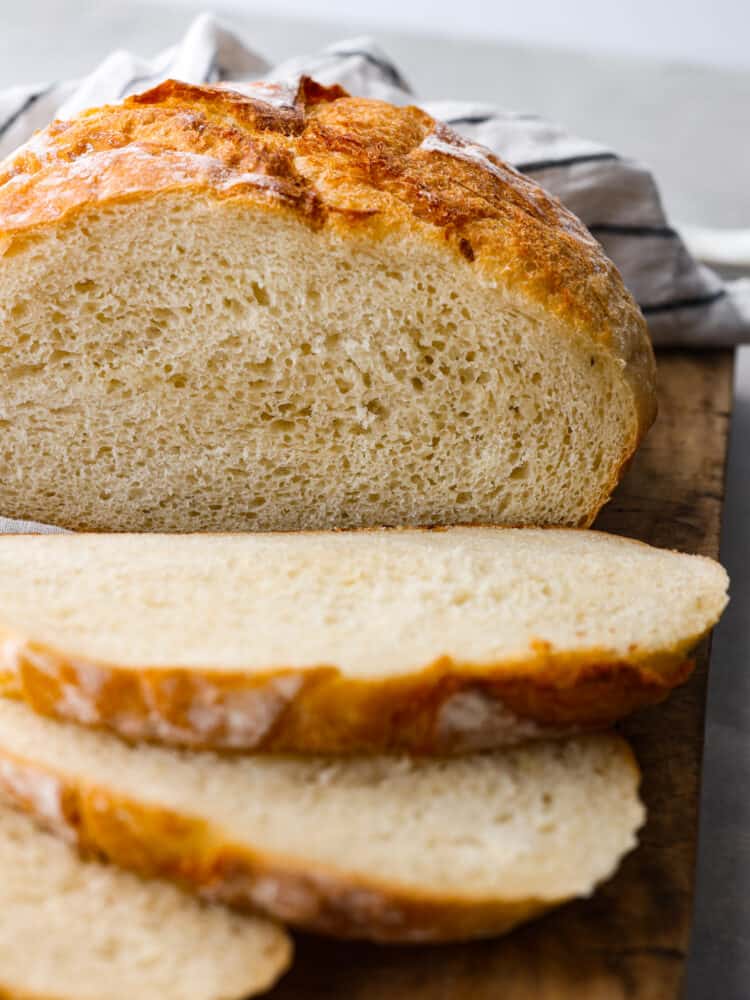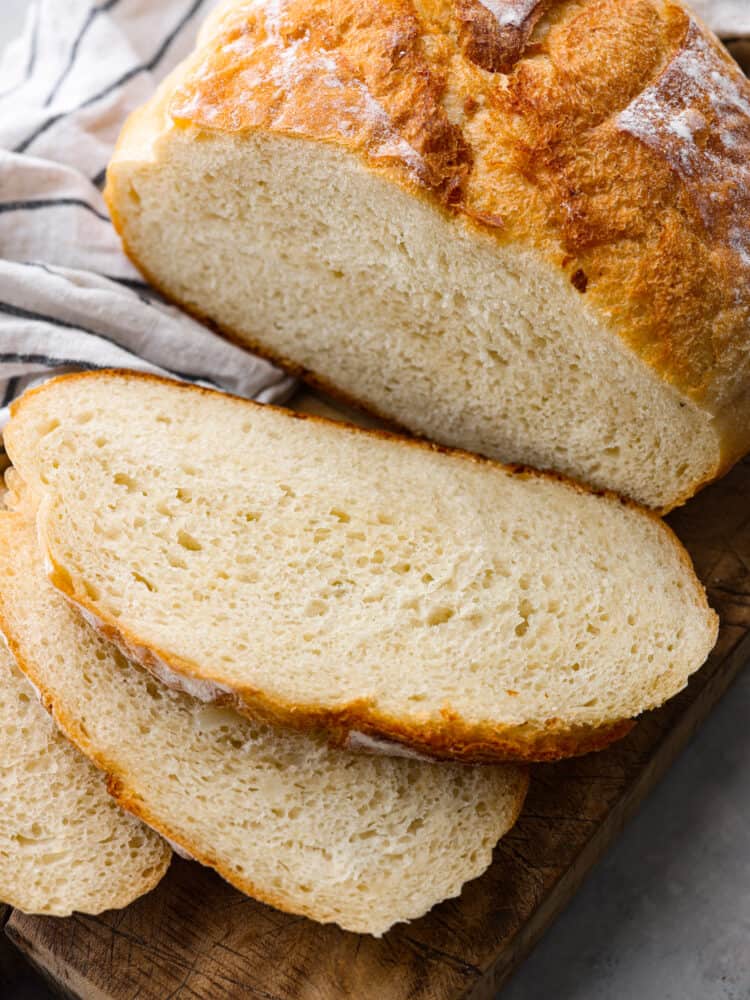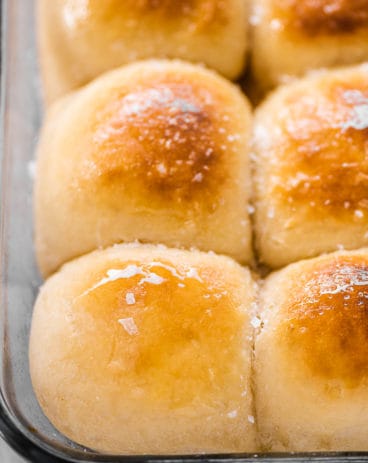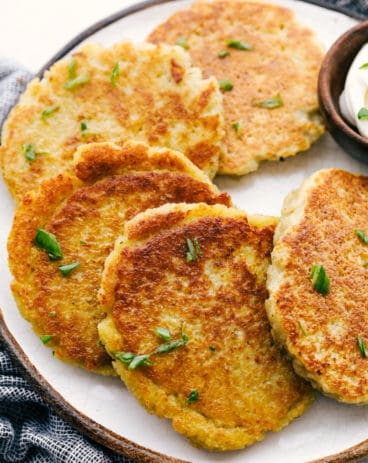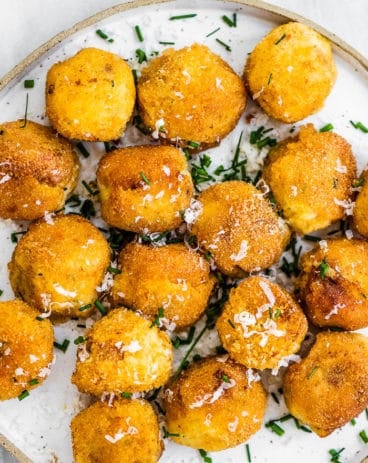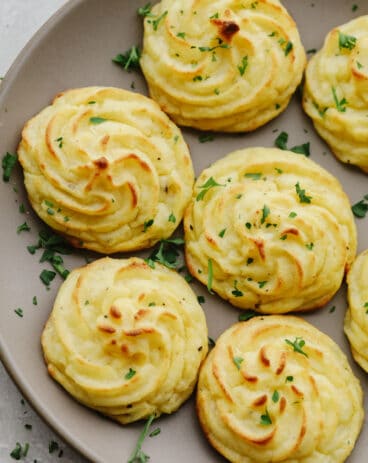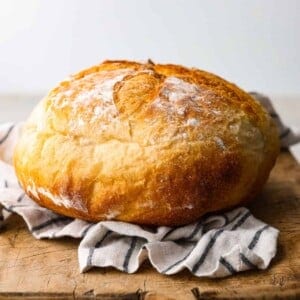Potato bread is a soft white bread that is spongy and delicious. The potatoes add a fluffy yet firm texture making it perfect for sandwiches, toast, or warm with jam. We LOVE homemade bread from the oven, and this potato bread is our new favorite! You will love how soft and tender this incredible bread is. For more delicious bread recipes, you should try my Grandma’s homemade bread, this yummy cheesy bread, or my classic sourdough bread.
What Does Potato Bread Taste Like?
Potato bread is like a traditional white bread but with mashed potatoes added in to replace some of the flour. No one will know the difference in taste, but they will rave over the soft texture. The potatoes take this bread to the next level, and you will love the golden light crust on the outside. This potato bread is so good that you’ll want to make multiple loaves to enjoy throughout the week. Fresh-baked bread is the key to anyone’s heart, and this recipe will impress everyone. Enjoy this potato bread recipe with strawberry jam, honey butter, or serve your bread warm with this amazing bread dip.
Ingredients For the Best Bread
This potato bread recipe only uses 6 ingredients! All ingredients you most likely already have on hand. You will love the addition of potatoes because it makes the softest bread you will ever make. I can’t wait for you to try this yummy potato bread!
Russet Potatoes: Starchy russet potatoes are perfect for this bread. Potato Water: Make sure to reserve potato water and read my tips for the water temperature. Instant Dry Yeast: Just one packet is all you need! Honey: Adds a little bit of sweetness to the bread. Salt: Salt to balance the flavors. Bread Flour: Bread flour is a must for the best bread in town!
Potato Bread Recipe
Making potato bread can be intimidating, but I will walk you through the process step by step. My instructions and pictures below are so helpful because I wanted you to have detailed help along the way. Follow the recipe card and tips below for everything you need to know before making this recipe.
Prepare the Dough
Shape and Rise the Dough
Bake the Bread
Cool the Potato Water: When using the reserved potato water, be sure to let it cool to about 100°. If you use water that is too hot it will speed the proofing up too much and take away from the structure and flavor of your bread. Use Oiled Hands Instead of More Flour: This dough will be fairly sticky right out of the mixer, but will firm up as it proofs and sets up. Keep your hands oiled. Avoid using a lot of flour while working with the dough, you don’t want to dry the dough out. Use the Poke Test: When you are checking to see if loaf is ready to bake, do a poke test on your loaf, note that it should be a very light poke, almost a tap. Poke the dough lightly, you’re looking for an indentation to slightly bounce back but stay in the loaf. If it is firm and your poke bounces back it needs more time, if it sinks in where you poked it, it’s over-proofed.
Baking Tips
Score the Bread: In the recipe I instructed to score the loaf with an X, you can really score your loaf any way you want. Scoring helps in the expansion process of the bread. This controls how your loaf expands, if you don’t score it, your loaf will likely split elsewhere. Brown the Crust: If your loaf is temping out to 190° but not getting up to color you can remove the lid after the initial 35 minutes to get a good browning on the top. Cool Before Cutting: Allow the loaf to cool for at least 30 minutes before cutting into it, if it’s too hot when you cut it the loaf will be too soft and weak.
In the Freezer: Wrap the cooled potato bread in plastic wrap, then wrap tightly in foil. Place the bread in a ziplock bag and seal. Frozen bread will keep up to 6 months. To Thaw: Remove from the freezer and let thaw to room temperature. Do not unwrap the bread from the bag until it has fully thawed to ensure freshness.
Potato Rolls
Potato Pancakes
Mashed Potato Balls
Duchess Potatoes
All nutritional information is based on third party calculations and is only an estimate. Each recipe and nutritional value will vary depending on the brands you use, measuring methods and portion sizes per household.
The Best Homemade Alfredo Sauce Recipe Ever!
Insanely Delicious Prime Rib Recipe
Lemon Garlic Parmesan Shrimp Pasta
